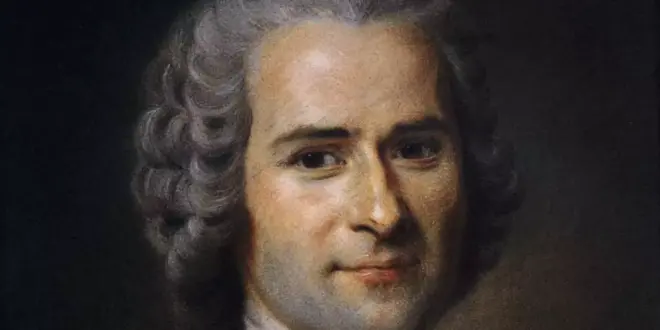The French philosopher, Jean-Jacques Rousseau famously stated that morality is our following of a voice of nature within us.
Jean-Jacques Rousseau and Ethics: This voice is often drowned out by passions or pride. Thus, the path to moral redemption becomes to turn back to the intimate moral contact with the heart.
This same view penetrates several of the world religions – the essence is to try to bring man closer to the spiritual realm where man will be able to find a deep sense of inner balance, satisfaction, and peace. The message is that the world is, whether we like it or not, governed by quite remarkably specific principles, writes historian of comparative religions and author, Hanne Nabintu Herland.
It does not matter if you belong to Hinduism, Taoism, Islam, Christianity, or atheism – the latter may be defined as the religion of those who believe in the abilities of mankind, and that man is able to solve the problems in the world without help from any spiritual realm. These laws apply to everyone, whether they believe in them or not.

Jean-Jacques Rousseau and Ethics: The nontheistic religion of Buddhism teaches, for example, about “the Four Noble Truths,” namely that all things are temporary and unsatisfying, though still, we cling to them. Once we stop greedily craving the things of this world and follow the right inner path, we may end or lessen our suffering.
The rise of cravings is the proximate cause of the rise of suffering. The point is that the right way of living will help end the suffering of life. This is a quite fascinating view which uniquely correlates to Christian teachings.
Clement of Alexandria points out that the rational purpose of life, the ultimate destination, is to become more similar to God, more knowledgeable and more filled with the love of God towards one’s fellow man.
RELATED ARTICLES:
- The Conservative philosopher Edmund Burke: We need to resist the passionate calls for revolution
- The French Revolution brought anarchy and destruction to France – Edmund Burke
- How the Left redefine History: Voltaire, hailed as apostle of tolerance was not tolerant at all
- Western Marxist “Liberalism” is vastly different from Traditional Liberalism – John Locke
Jean-Jacques Rousseau and Ethics: The deep-rooted essence of religion rests on the fact that man is created by, and profoundly dependent on God’s benevolence to exist. It is God, outside time and space and the narrow scope of understanding the universe that has created man, it is He that establishes the premises for life.
Man is to consider this carefully, as well as choose the right path and examine the way he lives to ensure that he may have a rewardingly fruitful life on earth, as well as reach a better place after death.
The idea is that God knows us far better than we know ourselves, and is able to guide us through the complicated landscapes of life in the best possible way, giving supernatural strength to withstand trials and tribulations.
This is why man ought to listen to God’s advice, as presented to him through the Holy Spirit in his inner man, through the body of religious texts that have withstood the test of time, as well as through spiritual priests and teachers whom he is led to consult.
Man needs to be humble, willing to learn, stretching his consciousness beyond the shortcomings of this world and reaching for God.










